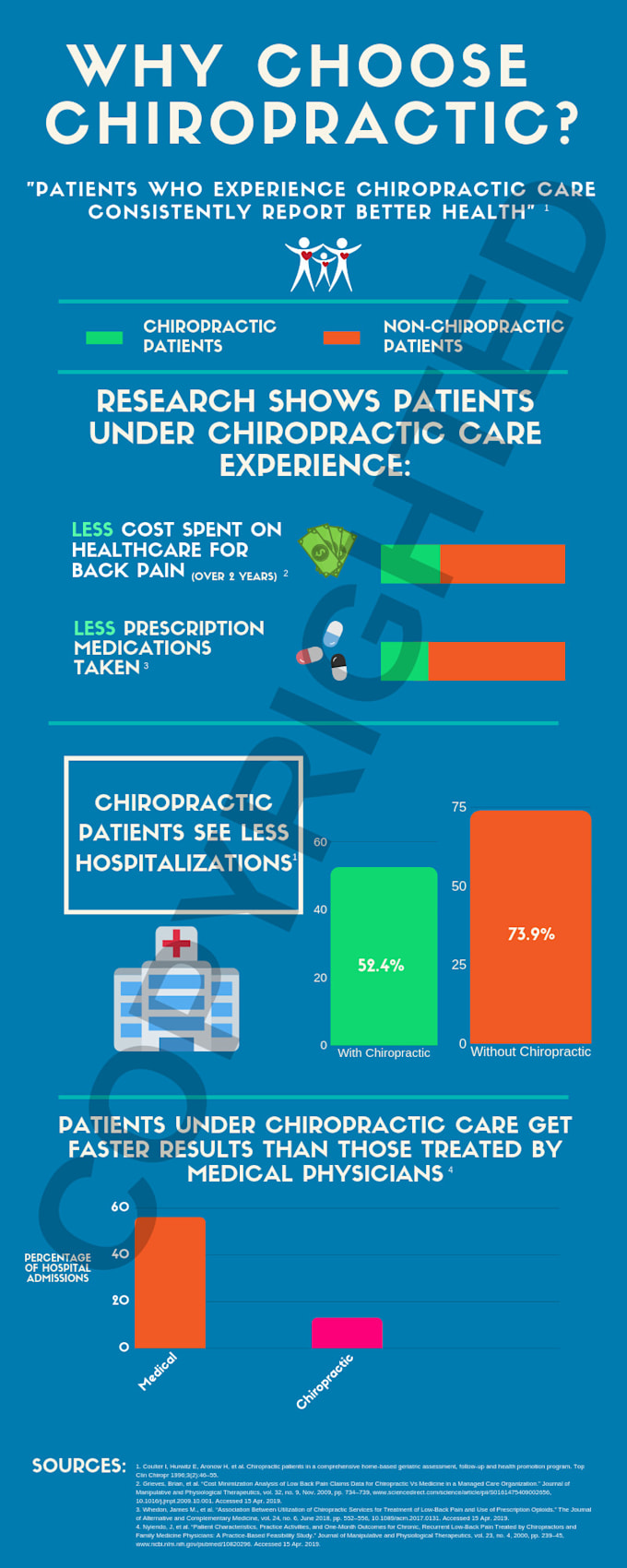The Impact Of Diet Plan On Neck And Back Pain Monitoring: Foods To Incorporate And Foods To Exclude
The Impact Of Diet Plan On Neck And Back Pain Monitoring: Foods To Incorporate And Foods To Exclude
Blog Article
Personnel Author-Livingston Wiese
When it pertains to handling your pain in the back, the food options you make can dramatically impact how you feel every day. Envision having the ability to alleviate your pain simply by adjusting what you consume. By recognizing the function of nutrition in pain in the back monitoring and understanding which foods to include or steer clear of, you can take positive steps towards a much healthier and more comfy lifestyle. The link between nourishment and back health and wellness is a lot more profound than you may realize-- let's explore just how specific foods can either calm or intensify your neck and back pain.
Importance of Nourishment in Back Pain
Nourishment plays an essential function in handling back pain. Your diet plan can considerably affect swelling degrees and total discomfort levels in your back. Eating a balanced diet regimen rich in nutrients like vitamins D and K, calcium, magnesium, and omega-3 fats can help in reducing inflammation and reinforce bones, which are crucial for back health and wellness.
Furthermore, preserving a healthy weight via proper nutrition can relieve tension on your back, lowering the threat of neck and back pain.
Additionally, certain nutrients like anti-oxidants found in fruits and vegetables can aid deal with oxidative anxiety and promote recovery in the body, including the back muscular tissues and back.
On the other hand, eating too much amounts of refined foods, sugary beverages, and harmful fats can add to swelling and weight gain, intensifying pain in the back.
Foods to Consume for Back Health And Wellness
To support a healthy back, integrating nutrient-rich foods right into your daily dishes is essential. Consisting of mouse click the following article in anti-oxidants like berries, spinach, and kale can help in reducing inflammation in your back, reducing discomfort and discomfort. Omega-3 fats discovered in fatty fish such as salmon and mackerel have anti-inflammatory buildings that can benefit your back wellness.
In addition, consuming nuts and seeds like almonds, walnuts, and chia seeds supplies necessary nutrients like magnesium and vitamin E, which support muscle function and minimize oxidative anxiety. Including lean proteins such as chicken, turkey, and tofu can help in muscle mass repair and upkeep, promoting a strong back.
Do not neglect to include milk or fortified plant-based alternatives for calcium to sustain bone health. Lastly, hydrate with a lot of water to keep your spine discs hydrated and functioning optimally. By including these nutrient-dense foods in your diet, you can nurture your back and support overall spine health.
Foods to Avoid for Neck And Back Pain
Select preventing refined foods high in sugarcoated and trans fats when looking for remedy for neck and back pain. These types of foods can contribute to inflammation in the body, which might exacerbate pain in the back. Say no to sweet treats like candy, breads, and sugary beverages, in addition to convenience food products like burgers, fries, and fried chicken that are typically filled with trans fats.
In addition, steer clear of foods consisting of high degrees of polished carbs, such as white bread, pasta, and breads, as they can increase blood sugar levels and potentially intensify swelling in the body.
functional medicine doctors that accept insurance near me 's additionally smart to limit your consumption of foods high in hydrogenated fats, like red meat and full-fat dairy products, as they can contribute to inflammation. Processed foods like deli meats, chips, and packaged snacks are often high in hydrogenated fats and ought to be eaten in moderation.
Conclusion
Finally, taking notice of your diet plan and making smart food options can have a significant effect on taking care of neck and back pain. By including nutrient-rich foods like berries, fatty fish, nuts, and lean healthy proteins, and staying clear of processed and sugary items, you can help reduce inflammation and support on the whole back health. Bear in mind, what you consume plays a vital function in exactly how you really feel, so see to it to prioritize your nourishment for a much healthier back.
